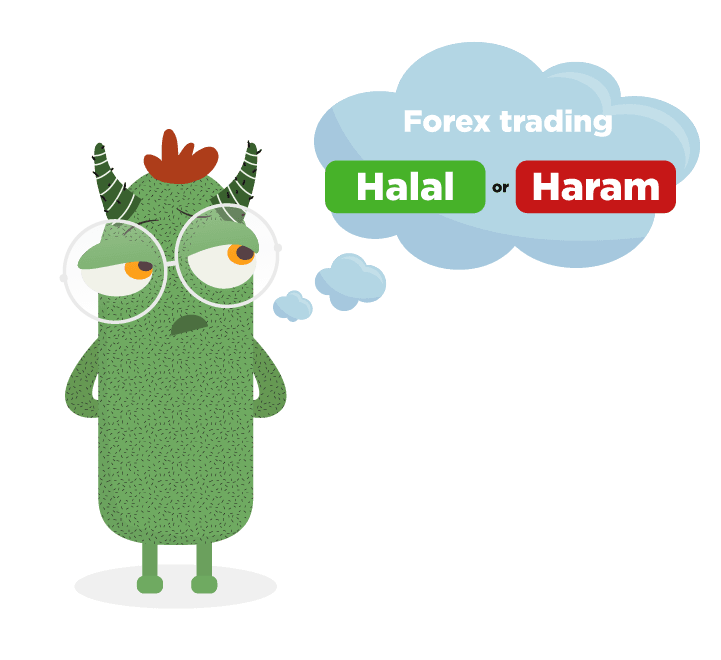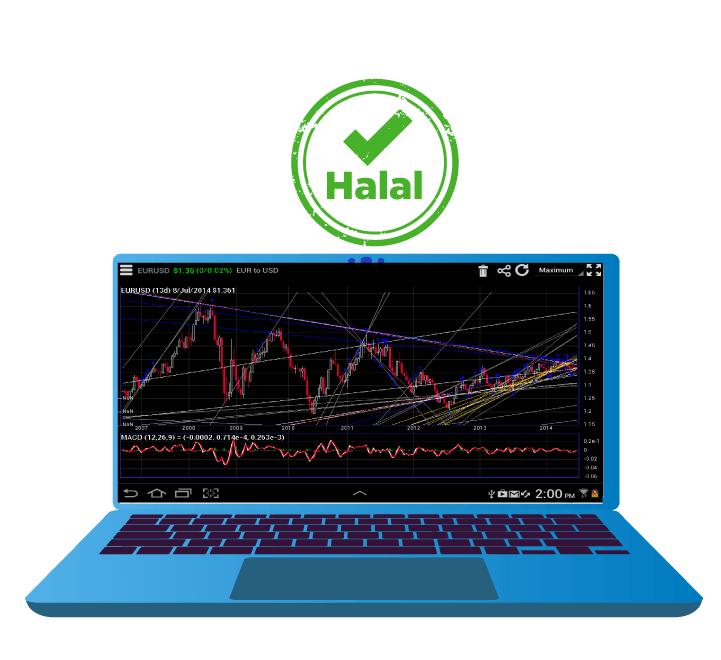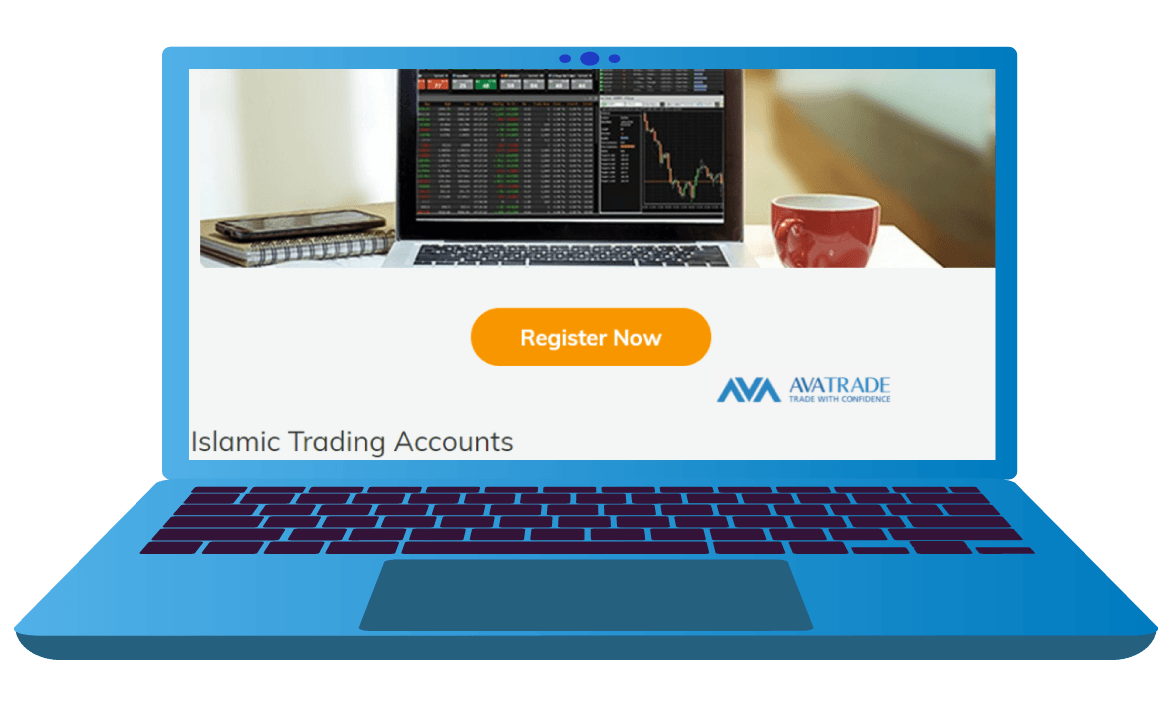Our partner, XM, lets you access a free demo account to apply your knowledge.
No hidden costs, no tricks.

With the increasing interest in Forex trading, Muslim traders are also considering participating in this thriving market. However, the religious side has another point of view.
Many consider it an invalid source of income since it includes some practices that are not allowed in the religion of Islam, such as leverage and swap interest rates. Another opinion suggests that it can be allowed only if an investor trades the correct way.
In the following article, we will discuss which types of trading are considered halal, and what Muslim traders need to consider before they start trading according to Islamic rules.


Let’s start by explaining the meaning of halal and haram trading before going a bit deeper into it. Halal means something that is permitted and allowed according to the Quran. As such, Halal trading is a form of trading that is in line with Sharia Law.
On the other hand, haram is the contrary - something that is prohibited and forbidden by the Quran. When a trade is Haram, it means that it does not line up with the regulations of Islam and Sharia Law.
With trading becoming accessible to everyone on the internet, it has become questionable if these types of trades are allowed by Sharia Law. To answer this question, let’s see what are the regulations of Islam, and what are the religious opinions about trading in general.
Islamic rules stemming from the Quran suggest that any income that is received without any job or effort being spent, is considered an invalid money generation. So, the reason why Forex is not allowed in Islam is that it includes several forms of interest that are to be paid and/or received.
The reason this matter draws the attention of many religious leaders is that people are able to make a lot of money from Forex trading without having to exert much effort to do so, and can get extremely wealthy from this practice.
In fact, some people rely on Forex trading as their primary source of income. This, along with the fact that the massive price fluctuations associated with currency trading can hurt the national economy, are what some religious leaders suggest could be considered Haram.
Trading is usually tied in with many interest payments, commissions, and payments that are said to be outside the rules of having a legal source of income. Leverage, swap interest, and the receiving or paying of any other interests are considered to be the things that fall outside the Law of fair trade.
So, a trader needs to avoid using any of these in order to be considered a halal Forex trader. Basically, Forex trading is a sort of trading that is legit and acceptable but needs to be practiced without receiving or paying any interest.

Any type of trading that does not include the use of leverage, swap interests, or additional interests to the broker, can be considered halal Forex trading. A broker may benefit from the spread range as a legit source of income, which is charged as a service fee.
The leverage, for example, is associated with an interest rate that is paid to the broker after the trade is over, and this payment to the broker is not allowed under Islamic rules. Therefore, a trader may invest in any currency pair only using their own capital without an additional amount from the broker (the leverage) because it is most likely associated with some form of interest payment.
Rollover swap is another type of interest that is extremely controversial. When a trader opens a position in the Forex market and leaves that position open until the next day, the rollover swap interest kicks in.
Depending on the currency pair that is being traded and depending on the regulations implemented by the broker, the trader may have to pay interest or receive interest on such positions. This interest rate is highly forbidden according to the Islam religion and makes the rollover swap something to avoid.
Forex trading is allowed in Islam, but only when using a trading account that is swap-free, where the trader does not pay or receive any interest.
The other rule that makes Forex trading permissible is the way in which the broker receives their payment. A broker may only receive their income as a service fee from the spread, which is the price difference between the bid and the ask.
According to Islamic rules, CFD trading is also not allowed, because in this case, a trader does not physically acquire the asset. Rather, a trader is only speculating on the future price of an asset. CFD trading is perceived as gambling according to Sharia Law, and it is forbidden for Muslim traders to trade these. Muslim traders should directly invest by buying or selling an asset and avoid these purely speculative markets.
In addition, the free will of the trader is highly considered. Traders should always have the freedom to decide whether they want to place a market order or not, as any pressure being put on them by the broker makes the trade invalid.
Islamic accounts have become quite a common thing lately, especially to help accommodate a big share of traders who respect the rules of Islam. These Islamic accounts operate slightly differently than the usual Forex trading accounts, as they strive to keep these accounts in line with Sharia Law.
These accounts enable individuals to trade Forex in a halal way, without having to tip-toe around trying to figure out if their trading account would be in line with their beliefs. These accounts are characterized by being swap interest-free and focus on direct dealings between the trader and the broker without any intermediary.
Islamic accounts enable traders to use the same financial instruments that can be enjoyed by any other trader. However, it should be noted that many brokers do not include cryptocurrency trading within Islamic accounts.
Reliable financial traders such as AvaTrade offer their clients the ability to trade Forex under Islamic rules.
To get your Islamic account with AvaTrade you can follow these simple steps:

Our partner, XM, lets you access a free demo account to apply your knowledge.
No hidden costs, no tricks.
Forex trading can be halal only under certain conditions. Using leverage, receiving sway interest payments, and trading CFDs are not allowed according to Islamic rules. Religious leaders perceive Forex trading as haram because of Forex's fundamental features. There are several interests and commissions that are paid or received which are considered “Riba” and are forbidden according to the Quran.
In order to trade Forex in a halal way, an investor needs to open a market position using their money without employing any leverage, avoid the rollover swap, and directly buy or sell an asset without a CFD.
Many brokers are offering swap-free accounts, and a trader may use such types of accounts freely since these types of accounts make Forex trading halal.
Yes, because these accounts are taking into account the regulations of the Islamic religion - they eradicate any interest payments and do not accumulate any additional payments outside the trading activities.
No, because with CFD (contract for differences) a trader does not physically acquire an asset, rather, traders use the money to speculate on the price fluctuations of an asset, which is perceived as gambling and that is totally prohibited in Islam.